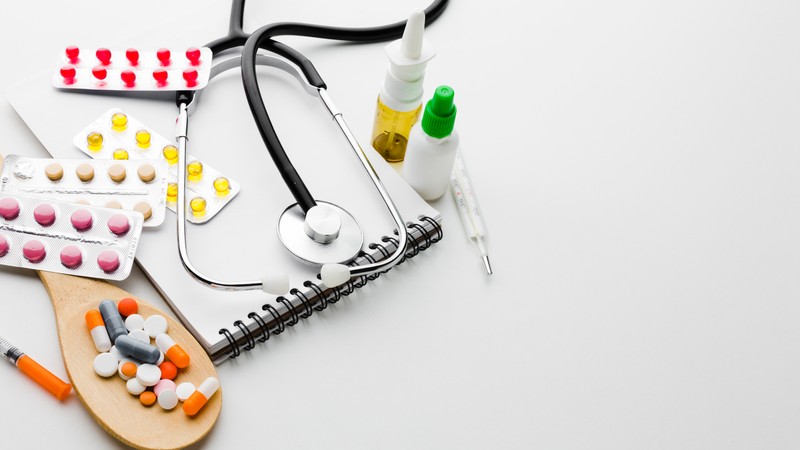A medication skin reaction can be a scary and uncomfortable experience. Learn how long it can last and what you can do to prevent and treat it.
Have you ever taken a new medication and noticed a rash, itching, or swelling on your skin?
If so, you may have had a medication skin reaction. This is a type of allergic reaction that occurs when your immune system reacts to a drug or its metabolites.
It can range from mild to severe, depending on the type and dose of the drug, your genetic makeup, and other factors.
If you want to learn more about medication skin reactions and how to deal with them, you can use our medicine reaction checker tool.
Symptoms of the Type of Reaction
The symptoms can vary depending on the type of reaction, but they usually include:
- Hives: Raised, red, itchy bumps that can appear anywhere on the body. They can change shape and size and may come and go within hours or days.
- Angioedema: Swelling of the deeper layers of the skin, especially around the eyes, lips, tongue, throat, or genitals. It can cause difficulty breathing or swallowing and may be life-threatening.
- Erythema multiforme: A rash that consists of red, circular patches with a darker center. It usually affects the hands, feet, face, and mucous membranes. It can be accompanied by fever, joint pain, and malaise.
- Stevens-Johnson syndrome (SJS): A severe form of erythema multiforme that affects more than 10% of the body surface area. It causes blisters and peeling of the skin and mucous membranes. It can lead to dehydration, infection, organ failure, and death.
- Toxic epidermal necrolysis (TEN): The most severe form of SJS that affects more than 30% of the body surface area. It causes widespread detachment of the skin and mucous membranes. It has a high mortality rate and requires intensive care.
How long does a medication skin reaction last?
The duration of a medication skin reaction depends on several factors, such as the type and severity of the reaction, the drug involved, and the treatment given.
In general, mild reactions such as hives and angioedema usually resolve within a few days or weeks after stopping the drug.
However, some people may experience chronic or recurrent episodes that last for months or years.

More serious reactions such as erythema multiforme, SJS, and TEN can take longer to heal and may leave permanent scars or complications.
The recovery time can vary from weeks to months depending on the extent of the damage and the quality of care.
Some people may need skin grafts or other surgeries to repair the affected areas.
How to prevent and treat a medication skin reaction?
The best way to prevent a medication skin reaction is to avoid taking drugs that you are allergic to or have had a previous reaction to.
You should always inform your doctor about your medical history and any allergies you have before starting a new medication.
You should also read the labels and instructions carefully and follow them exactly.
If you are unsure about a drug or its ingredients, ask your pharmacist or your doctor for clarification.
If you develop a medication skin reaction, you should stop taking the drug immediately and seek medical attention.
Depending on the type and severity of the reaction, you may need:
- Antihistamines to reduce itching and swelling
- Corticosteroids to suppress inflammation
- Epinephrine to treat anaphylaxis (a severe allergic reaction that can cause shock)
- Antibiotics to prevent or treat infections
- Intravenous fluids to prevent dehydration
- Painkillers to relieve discomfort
- Immunoglobulins neutralize the antibodies that cause the reaction
- Skincare products to moisturize and protect the skin
- Wound dressings to cover and heal the lesions
